In photos: Under cloudy skies, łÔąĎ±¬ÁĎ community gathers to experience near-total solar eclipse
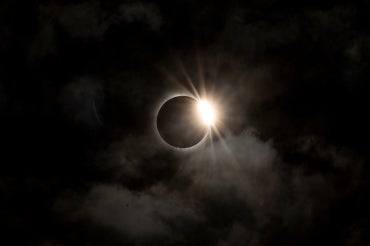
The April 8 solar eclipse in the skies over łÔąĎ±¬ÁĎ Mississauga, where the clouds parted just in time to give watch party attendees a thrilling spectacle (photo by Nick Iwanyshyn)
Published: April 9, 2024
Skies darkened and temperatures dropped as the solar eclipse swept across the University of Toronto’s three campuses Monday, bringing community members together to marvel at the celestial spectacle.
Hundreds of community members gathered outside and donned safety glasses to gaze skyward in hopes of witnessing the eclipse from the three campuses, which were adjacent to the path of totality. Others tuned into .
While gathering clouds obscured the sun around Greater Toronto, the skies cleared just in time to give a lucky few a clear view of the rare astronomical alignment – including those who gathered for .
Here’s how the day unfolded through the lenses of photographers at the university:
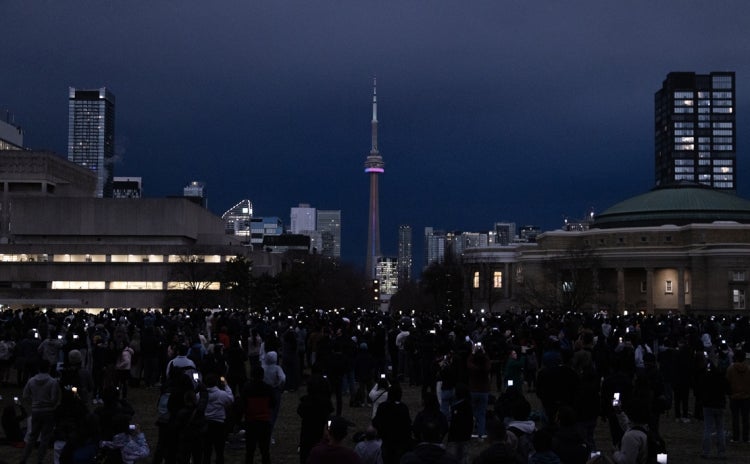
On łÔąĎ±¬ÁĎ’s St. George campus, hundreds pulled out their phones to capture the CN Tower as the city lights pierced through a blackened mid-day sky.
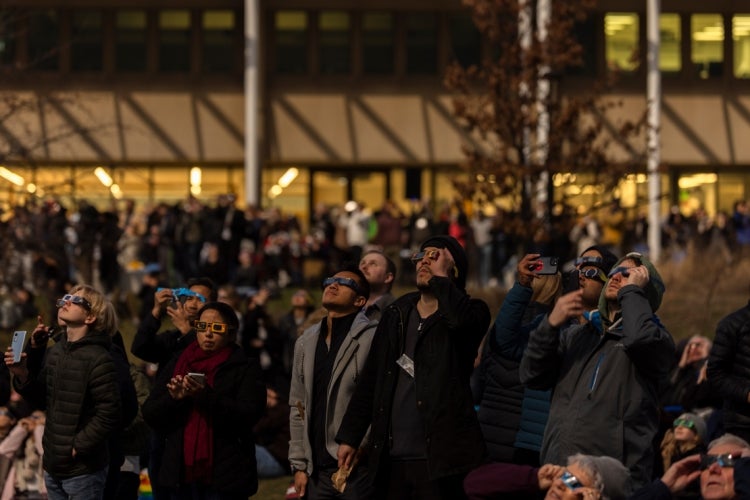
Clouds gave way to clear skies at just the right moment for hundreds of people gathered at łÔąĎ±¬ÁĎ Mississauga to witness the solar eclipse.

While Mississauga was not in the path of totality, the near-total eclipse turned the sky slate grey and deep blue, while a chill in the air cooled the warm spring day.
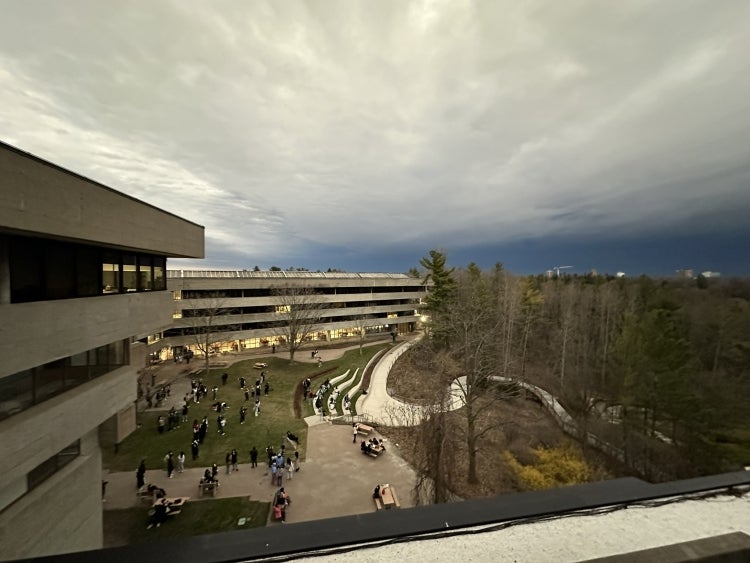
At łÔąĎ±¬ÁĎ Scarborough, community members convened outside the Science Wing as overcast skies loomed over the Ma Moosh Ka Win Trail.

A station set up by Vera Velasco, a łÔąĎ±¬ÁĎ Mississauga plant physiologist at Growth Facilities research greenhouse and growth chambers, walked attendees at the viewing party through an experiment tracking how the eclipse impacts photosynthesis. As the eclipse occurred, Velasco and fellow researchers also showed its colours using a spectrometer.

Astronomer Marta Bryan, an assistant professor in łÔąĎ±¬ÁĎ Mississauga’s department of chemical and physical sciences, spoke to the crowd about the science behind the solar eclipse, complete with a demonstration from some of the younger audience members playing sun, moon and Earth.
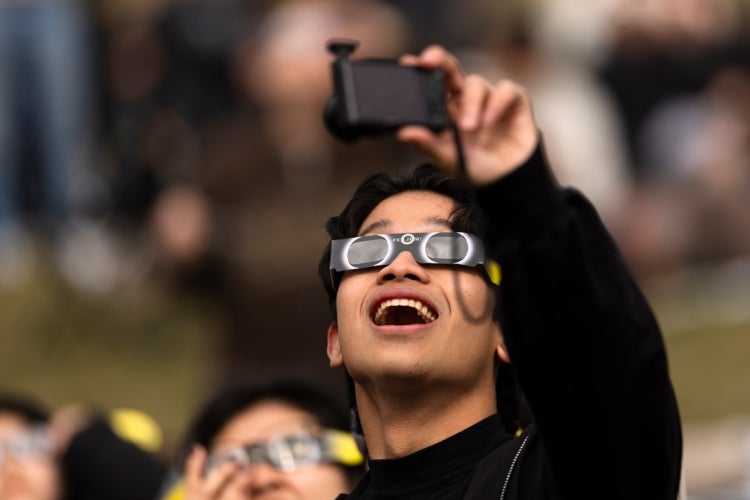
While it's possible to see a total solar eclipse from somewhere on Earth every few years, it will be another 120 years before viewers in southern Ontario are treated to an eclipse as total as the one on April 8. "It's truly a once-in-a-lifetime event for all of us," Bryan says.



